Drought in the West, storms in the South?
The last few months have brought examples of extreme weather to much of the country. And the government response has not necessarily instilled confidence in how levels of government respond to natural disasters. Though majorities have some confidence in all levels of government, few are very confident in government abilities.
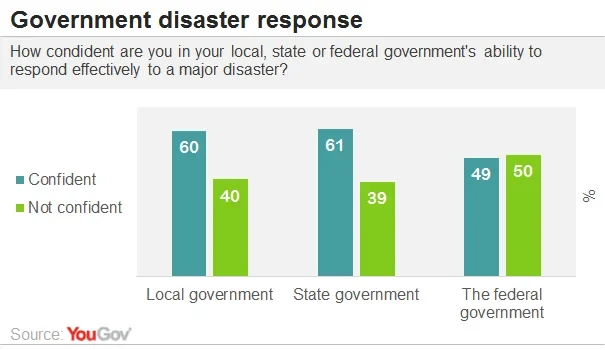
As usual, those government units that are closer to home fare better in public confidence, but that depends on where one lives and what the weather has been doing there lately.
Snow and drought
Americans are more aware of the snowfall in Atlanta than they are of the drought in the West. Nearly a third are unaware of drought conditions in California; only 13% hadn’t heard of the Southern snowfalls. And the public’s judgment of the ability of local governments to respond to natural disasters are harsher in those regions than they are elsewhere. Nearly half of those in the West have little or no confidence in their state government’s response to a natural disaster; nearly half in the South lack confidence in their local area governments.
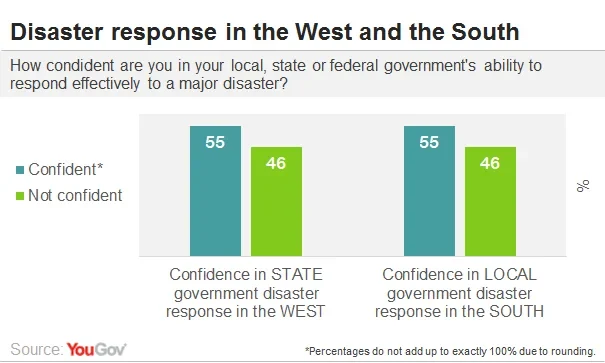
Of course, the assessment of the national government on this, as on just about all issues, is heavily partisan and reflects the party of the President: two-thirds of Democrats are confident in the federal government’s ability to respond to natural disasters; two-thirds of Republicans are not. Although one in five Americans express no opinion on the President’s handling of the environment, his rating is mixed: 39% approve; 43% disapprove.
Local governments must respond to events like snowstorms – roads need to be cleared, schools and office buildings may be closed. Those in the South respond very differently than those in other parts of the country when it comes to how much snow should cause schools to close. For Southerners, 3 inches is the median figure for the amount of snow they think is needed to close schools. Elsewhere, the median is between 5 and 6 inches. In the Midwest, the scene of some of the largest snowstorms – and the coldest temperatures this winter -- and in the Northeast, respondents say it should take twice as much snow to close schools as people in the South suggest.
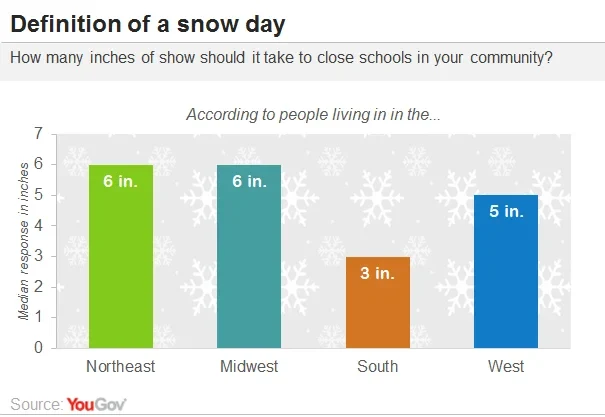
There is a lot of acceptance of the need for water conservation, especially in the drought-plagued West. Most Americans are willing to limit the use of water to necessities – 59% say they’d operate their dishwasher only on full loads, 61% would look for leaks in their plumbing. Most would not run water while brushing their teeth, and half are willing to take shorter showers. But there are some things that the public is less willing to do: just 33% would be willing to limit the number of times they flush their toilets. Only three in ten would replace an old toilet; even fewer would replace a washing machine to save water. Except for installing a high-efficiency showerhead (which 50% would do), most Americans are not willing to take steps to conserve water that cost money.
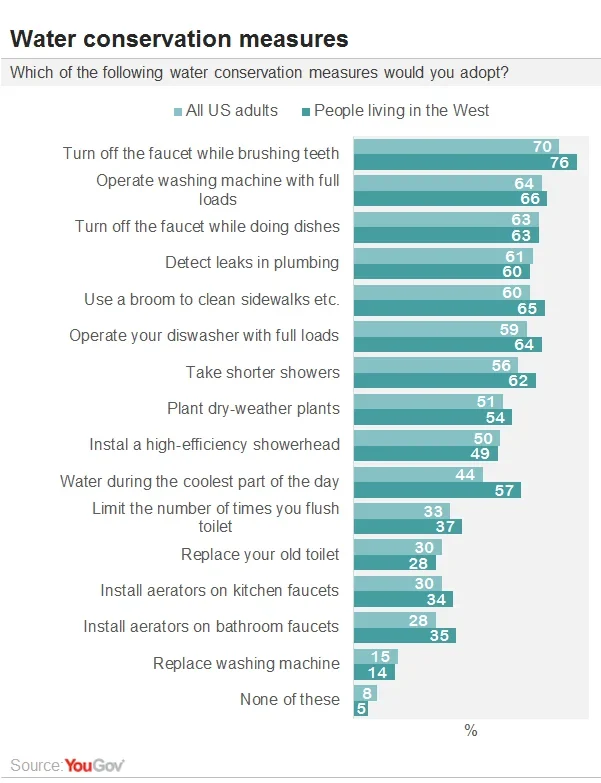
On the items that don’t require spending, those in the West are more willing to conserve; the state’s Governor, Jerry Brown, has urged Californians to take shorter showers, not run the water while brushing their teeth, and only flush when necessary. For all three of those items Westerners are somewhat more willing to take action, though most are still unwilling to limit flushing.
Climate change
After a hurricane devastated parts of the Philippines last November, there was a slight increase in the percentage of Americans who felt that events like that and like 2012’s Superstorm Sandy the previous year were the result of climate change, though that was still not a majority position. In July 2012, 35% attributed weather events to climate change; 40% thought so last year. There has been no increase since then in support: half the country today describes the Southern storms and the Western drought as something that “just happens from time to time.”
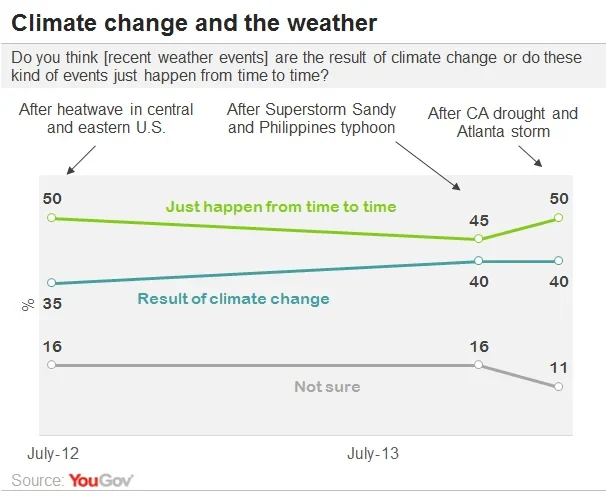
Republicans and independents are skeptical about the existence of climate change; by two to one, Democrats say climate change is happening. Nearly half of college graduates agree: 48% of college graduates blame recent weather events on climate change, 44% do not.
Image: Getty
Full results can be found here.
Economist/YouGov poll archives can be found here.
Join YouGov today! Your views can shape the news...








